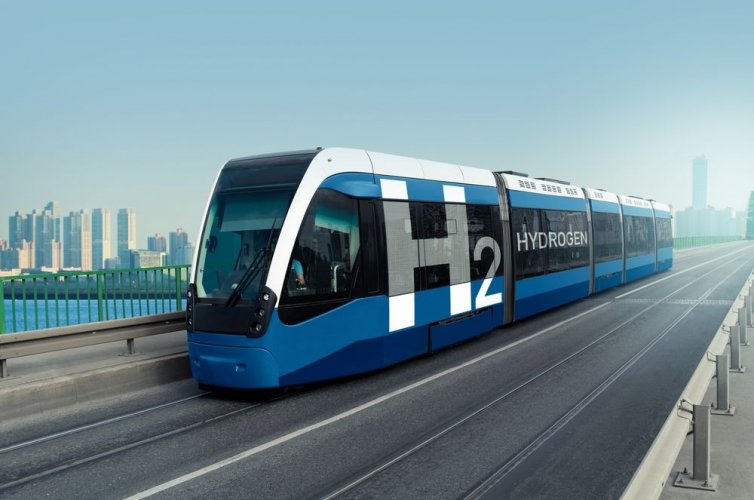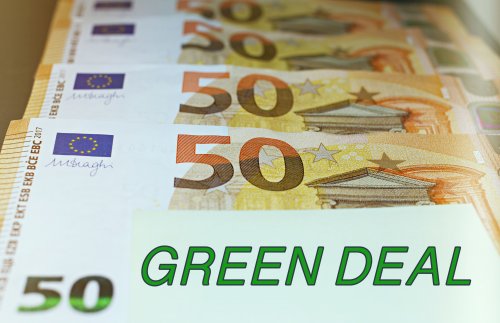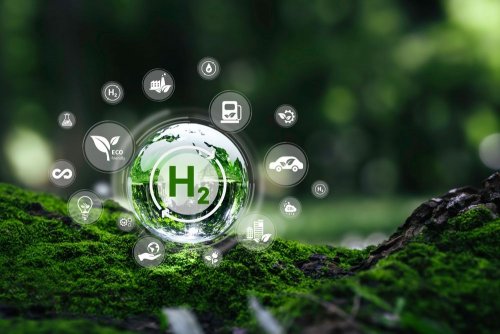The European Commission has approved state aid of €1.4 billion from 7 member states for the IPCEI Hy2Move project to support research, innovation, and widespread use of hydrogen to replace fossil fuels in transport. In addition to public funding, it is planned to attract €3.3 billion in private investment.
The relevant message appeared on the website of the European Commission.
The IPCEI (Important Projects of Common European Interest) Hy2Move project was jointly prepared by 7 EU member states: Estonia, France, Germany, Italy, the Netherlands, Slovakia and Spain. It provides for:
- Development of mobility and transport applications for the integration of hydrogen technologies in vehicles (automotive, marine and aviation). This includes, for example, fuel cell transport platforms for use in buses and trucks.
- Development of highly efficient fuel cell technologies that use hydrogen to generate enough electricity to power ships and locomotives.
- Development of solutions for on-board hydrogen storage of the next generation. For use in aircraft, light but strong hydrogen tanks are required to ensure safety and efficiency in flight conditions.
- Development of hydrogen production technologies for mobility and transport, in particular to provide on-site hydrogen refueling stations with hydrogen under pressure, 99.99% pure, suitable for use in fuel cells.
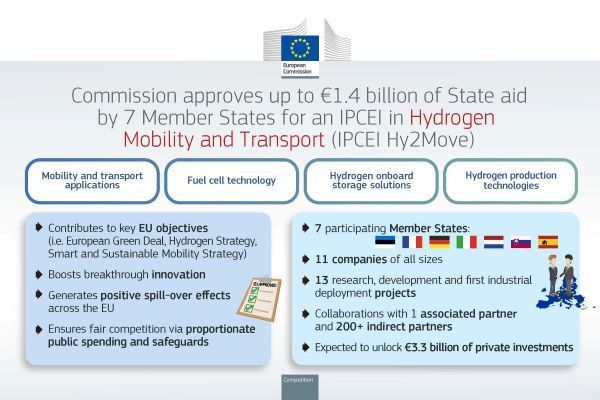
ec.europe.e
As part of this IPCEI, 11 companies, including Airbus, BMW and Michelin, will participate in 13 innovative projects to develop low-carbon hydrogen technologies together with universities and research organizations across Europe. The distribution of companies by the 4 directions of research and development, which were mentioned above, is presented in the infographic: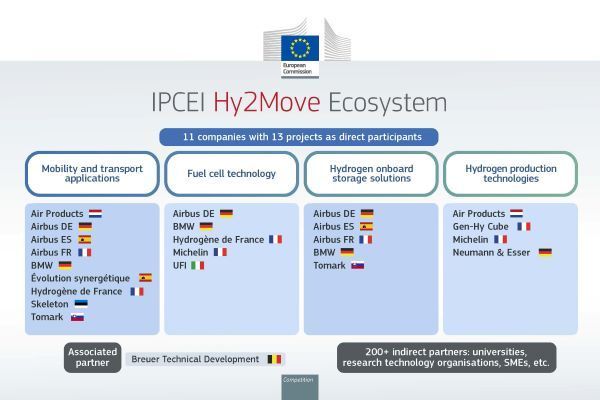
ec.europe.e
IPCEI Hy2Move complements the first three IPCEIs in the hydrogen value chain:
- in July 2022, the European Commission approved IPCEI “Hy2Tech”, focused on the development of hydrogen technologies for end users;
- in September of the same year, it agreed to the IPCEI “Hy2Use”, which focused on the use of hydrogen in the industrial sector;
- in February 2024, the IPCEI “Hy2Infra” was approved, which deals with investments in infrastructure not covered by the first two IPCEIs.
Hy2Move, unlike them, focuses exclusively on specific challenges and tasks arising for hydrogen technologies in the field of mobility and transport.
The project is expected to help reduce emissions in the mobility and transport sectors by 90% to make the EU climate neutral by 2050. It will also contribute to the achievement of the goals of the European Green Deal, the EU Hydrogen Strategy and the Sustainable and Smart Mobility Strategy.
In February, EcoPolitic reported on the European Commission's approval of state aid worth €6.9 billion for 33 Hy2Infra hydrogen infrastructure projects in 7 bloc countries.

